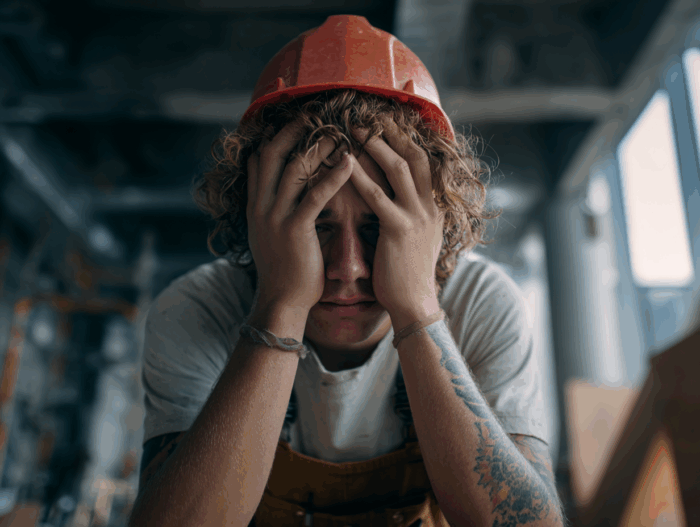Mental Health Crisis Deepens in Construction as Workers Face Rising Discrimination

Nearly two-thirds of construction workers experienced anxiety or depression in the past year, a sharp rise from 54% just one year ago, while those seeking help increasingly face workplace discrimination, according to Clayco’s second annual mental health survey of more than 2,000 industry workers and executives.
“For an industry that has made huge strides in improving and promoting the physical safety of our workers, it is time that we focus, collectively, on addressing the mental health and psychological safety issues faced by the entire construction sector,” said Anthony Johnson, CEO of Clayco, a real estate development and construction firm.
Rising Mental Health Challenges Strain Workforce
The construction industry’s mental health crisis shows signs of acceleration across all demographics. Female workers report the highest rates at 73%, compared to 60% for males. Generation Z workers face particularly acute challenges at 69%, though baby boomers also show concerning levels at 66%.
Workers increasingly turn to both healthy and harmful coping mechanisms. Professional mental health service usage jumped to 44% from 34% the previous year, while prescribed medication use rose to 35% from 27%. However, 58% of workers admit to misusing substances to cope with mental health challenges, an 11-point increase from the prior survey.
Physical job demands, poor work-life balance, and tight project deadlines emerged as the primary stress drivers, with 36% of workers missing work due to mental health concerns.
Stigma Creates Dangerous Workplace Dynamic
Despite widespread willingness among workers to support struggling colleagues, significant barriers prevent open dialogue about mental health. Nearly half of construction workers feel ashamed discussing their mental health with coworkers, a six-point increase from the previous year. More troubling, 37% of those who sought professional help report experiencing workplace discrimination.
The executive survey reveals systemic issues behind this stigma. One in five construction executives admitted workers who disclose interest in mental health services would receive fewer important task assignments, while 30% said these workers would face increased monitoring. This disconnect extends to service availability perception, with 80% of executives believing workers have access to mental health support while only 61% of workers agree.
“The unfortunate reality is that the long hours, physically demanding work and a male-dominated and stoic culture that discourages many from discussing mental health make construction workers, and executives, more susceptible to mental health issues when compared with many other professions,” said Darcy Gruttadaro, chief innovation officer at the National Alliance on Mental Illness (NAMI), which is partnering with Clayco to increase psychological safety in construction.
“The data makes clear that stigma continues to be a barrier to addressing the mental health issues that are pervasive across the construction industry,” said Dan Lester, vice president of Field Culture and Inclusion at Clayco.“Our mutual goal is to ensure that both construction workers and executives understand that seeking support is an act of strength, not weakness.”
View the full report here. &








